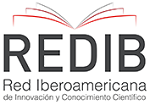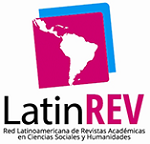Pedagogical innovation and ict: a proposal for accounting education.
DOI:
https://doi.org/10.15649/2346030X.775Keywords:
Pedagogical strategies, pedagogical approaches, ICT, learning, accounting education.Abstract
This reflection paper aims to identify and characterize pedagogical strategies supported by information and communication
technologies (ICT) that allow better results in students learning processes from the review of trends reports in technologies for education
published by academic observatories, which integrate and follow up cases generated in multiple regions of the world on the application of
methodologies and the development of technologies. And from the innovative pedagogical practices (gamification, challenge-based learning,
inverted learning, and adaptive learning) and the identified ICT (Augmented Reality, Virtual Reality, Mixed Reality and Storytelling), making
an implementation proposal that involves them for the case of accounting education.
In order to do this, the trends reports by the Observatory of Educational Innovation from the Tecnológico de Monterrey and the NMC
Horizon Report were reviewed in order to synthesize the main tools integrated into a new education stream, subject to implementation and
analysis by researchers who consider that these strategies supported in ICT promote motivation, self-training, teamwork, among other skills in
student to strengthen autonomous learning processes. Finally, based on the conclusions, the proposal for the integration of these tools through
hybrid learning into accounting education is made, which favors agile learning, facilitating flexibility, access and generation of multimedia
elements.
References
A. Ahmed, y M. Sutton, “Gamification, serious games, simulations, and immersive learning environments in knowledge management initiatives”, World Journal of Science, Technology and Sustainable Development, vol. 14, no. 2/3, pp. 78–83, April, 2017.
R. Alsawaier, “The International Journal of Information and Learning Technology The effect of gamification on motivation and engagement”, The International Journal of Information and Learning Technology, vol. 35, no. 1, pp. 56 – 79, 2018.
W. Avendaño, L. Paz y G. Rueda, “La investigación formativa las prácticas docentes de los profesores de un programa de contaduría pública”, Cuadernos de Contabilidad, Bogotá D.C., Colombia, vol. 17, no. 43, pp. 157 – 182, 2016.
R. Baxter, K. Holderness y D. Wood. “Applying basic gamification techniques to IT compliance training: Evidence from the lab and field”. Journal of Information Systems, vol. 30, no. 3, pp. 119 – 133, 2016.
H. Betancur, “La virtualidad: nuevo escenario para la construcción de conocimiento contable. Un reto para las facultades de contaduría pública”, Lúmina 09, enero - diciembre, pp. 101 – 122, 2008.
N. Casandra, “The hero’s learning journey”, World Journal of Science, Technology and Sustainable Development, vol. 14, no. 2/3, pp. 155–171, April, 2017.
C. Ciro, “Aprendizaje Basado en Proyectos (A.B.Pr) Como estrategia de Enseñanza y Aprendizaje en la Educación Básica y Media”, tesis de Maestría en Enseñanza de las Ciencias Exactas y Naturales, Universidad Nacional de Colombia, Medellín, p. 79, 2012.
R. Contreras. “Juegos digitales y gamificación aplicados en el ámbito de la educación”, RIED. Revista Iberoamericana de Educación a Distancia, vol. 19, no. 2, pp. 27-33, 2018.
D. Craven, “Gamification in virtual worlds for learning: a case study of PIERSiM for business, in Reiners, T. and Wood, L.C. (Eds)”, Gamification in Education and Business, Springer, Cham, pp. 385-401, 2015.
S. Dale, “Gamification: making work fun, or making fun of work?”, Business Information Review, vol. 31, no. 2, pp. 82-90, 2014.
R. Díaz, y J. Freire, “Educación expandida”, Zemos98, pp. 49-84, 2012. [En línea]. Disponible en: http://www.zemos98.org/descargas/educacion_expandida-ZEMOS98.pdf.
Educase, “NMC Horizon Report 2017 Higher Education Edition”, Austin, Texas: The New Media Consortium, 2018. [En línea]. Disponible en: https://www.nmc.org/publication/nmc-horizon-report-2017-higher-education-edition-spanish/tendencias-clave-que-aceleran-la-adopcion-de-nuevas-tecnologias-en-la-educacion-superior/tendencias-a-largo-plazo-avance-en-la-adopcion-de-nuevas-tecnologias-en-la-educacion-superior-en-cinco-o-mas-anos/enfoques-de-aprendizaje-mas-profundo/#_edn1
Educase, “NMC Horizon Report 2016 Higher Education Edition”, Austin, Texas: The New Media Consortium, 2017. [En línea]. Disponible en: http://cdn.nmc.org/media/2016-nmc-horizon-report-HE-ES.pdf
Educase, “NMC Horizon Report 2015 Higher Education Edition”, Austin, Texas: The New Media Consortium, 2016. [En línea]. Disponible en: http://cdn.nmc.org/media/2015-nmc-horizon-report-HE-ES.pdf
Educase, “NMC Horizon Report 2014 Higher Education Edition”, Austin, Texas: The New Media Consortium, 2015. [En línea]. Disponible en: http://cdn.nmc.org/media/2014-nmc-horizon-report-ES.pdf
A. Fidalgo, M. Sein-Echaluce, y F. García, “Aprendizaje Basado en Retos en una asignatura académica universitaria”, Revista Iberoamericana de Informática Educativa, no. 25, Enero – Junio, p. 8, 2017.
D. Folmar, “Game it up: Using Gamification to Incentivize your Library”, Rowman & Littlefield, Lanham, 2015.
J. García, C. Ramírez y J. García del Junco. “Integrando el aprendizaje en equipo, el estudio de casos y el aprendizaje basado en problemas en asignaturas de contabilidad: errores básicos y recomendaciones”. Revista Internacional de Investigación e Innovación Educativa, vol. 4, pp. 162 – 174, 2015.
J. Gómez. “Gamificación en contextos educativos: análisis de aplicación en un programa de contaduría pública a distancia”. Revista Universidad & Empresa, vol. 22, no. 38, pp. 8 – 39, 2020.
J. Hamari, J. Koivisto y H. Sarsa, “Does gamification work? A literature review of empirical studies on gamification”, Proceedings of the 47th Hawaii International Conference on System Sciences, Hawaii, January, pp. 6-9, 2014.
J. Hansen. “Using problem-based learning in accounting”. Journal of Education for Business, vol. 81, no. 4, pp. 221 – 224, 2006.
R. Hunicke, M. Leblanc y R. Zubek, “MDA: a formal approach to game design and game research”, AAAI Workshop on Challenges in GAMEAL, San José, CA, 2004.
K. Kapp, “Games, gamification, and the quest for learner engagement”, Training and Development, vol. 66, no. 6, pp. 64-68, 2012.
M. Kavaliova, F. Virjee, N. Maehel y I. Kleppe, “Crowdsourcing innovation and product development: gamification as a motivational driver”, Cogent Business & Management, vol 3, no. 1, 2016.
T. Kingsley y M. Grabner-Hagen, “Gamification: questing to integrate content, knowledge, literacy, and 21st-century learning”, Journal of Adolescent & Adult Literacy, vol. 59, no. 1, pp. 51-61, 2015.
P. Langendahl, M. Cook y C. Mark-Herbert, “Gamification in higher education”, 2016. [En línea]. Disponible en: http://pub.epsilon.slu.se/13429/7/langendahl_p_a_etal_160602.pdf
M. Leaning, “A study of the use of games and gamification to enhance student engagement, experience, and achievement on a theory-based course of an undergraduate media degree”, Journal of Media Practice, vol. 16, no. 2, pp. 155-170, 2015.
C. López, “Un modelo de investigación orientado a la implementación de programas estructurados en ambientes virtuales de aprendizaje”, Revista Uni-pluri/versidad, vol. 15, no. 2, pp. 61 – 73, 2015.
F. Mesa y A. Forero, “Las TIC en la normativa para los programas de educación superior en Colombia”. Praxis y Saber, Revista de Investigación y Pedagogía, vol. 7, no. 14, pp. 91 – 113, 2016.
F. Miley. “The storytelling project: innovating to engage students in their learning”. Journal Higher Education Research & Development, vol. 28, no. 4, pp. 357 – 369, 2009.
S. Moncada y T. Moncada. “Gamification of learning in accounting education”. Journal of Higher Education Theory and Practice, vol. 14, no. 3, pp. 9 – 19, 2014.
M. Morillo, “Aprendizaje adaptativo. Trabajo final de fin de semestre en el Máster en profesor de educación máster en profesor de educación secundaria obligatoria y secundaria obligatoria y bachillerato, formación profesional bachillerato, formación profesional y enseñanzas de idiomas”, Universidad de Valladolid, p. 60, 2016.
B. Morschheuser, J. Hamari y J. Koivisto, “Gamification in crowdsourcing: a review”, 49th Annual Hawaii International Conference on SystemSciences (HICSS), 2016.
M2 Research Gamification in 2012: Market Update, Consumer and Enterprise Market Trends, 2012. [En línea]. Disponible en: http://gamingbusinessreview.com/wp-content/uploads/2012/05/Gamificationin-2012-M2R3.pdf.
Observatorio de Innovación Educativa del Tecnológico de Monterrey, “Reporte EduTrends – Realidad Aumentada y Realidad Virtual”, Tecnológico de Monterrey, México, 2017a, [En línea]. Disponible en: https://observatorio.tec.mx/redutrends/
Observatorio de Innovación Educativa del Tecnológico de Monterrey, “Reporte EduTrends - Storytelling”, Tecnológico de Monterrey, México, 2017b, [En línea]. Disponible en: https://observatorio.tec.mx/redutrends/
Observatorio de Innovación Educativa del Tecnológico de Monterrey, “Reporte EduTrends - Gamificación”, Tecnológico de Monterrey, México, 2016a, [En línea]. Disponible en: https://observatorio.tec.mx/redutrends/
Observatorio de Innovación Educativa del Tecnológico de Monterrey, “Reporte EduTrends – Aprendizaje Basado en Retos”, Tecnológico de Monterrey, México, 2016b, [En línea]. Disponible en: https://observatorio.tec.mx/redutrends/
Observatorio de Innovación Educativa del Tecnológico de Monterrey, “Reporte EduTrends – Aprendizaje Invertido”, Tecnológico de Monterrey, México, 2014a, [En línea]. Disponible en: https://observatorio.tec.mx/redutrends/
Observatorio de Innovación Educativa del Tecnológico de Monterrey, “Reporte EduTrends – Aprendizaje Adaptativo”, Tecnológico de Monterrey, México, 2014b, [En línea]. Disponible en: https://observatorio.tec.mx/redutrends/
Observatorio de Innovación Educativa del Tecnológico de Monterrey, “Reporte EduTrends – Massive Open Online Course”, Tecnológico de Monterrey, México, 2014c, [En línea]. Disponible en: https://observatorio.tec.mx/redutrends/
U. Osorio y S. Malavera, “Medios digitales emergentes en la implementación de didácticas específicas en el programa de administración de empresas”, Revista Prisma Social, vol. 21, 2ndo trimestre, pp. 438 – 457, 2018.
S. Olivares, M. López y J. Valdez, “Aprendizaje basado en retos: una experiencia de innovación para enfrentar problemas de salud pública”, Escuela de Medicina y Ciencias de la Salud, Tecnológico de Monterrey, Monterrey, Nuevo León, México, p. 8, 2017.
C. Parra, “Las TIC y la educación en Colombia durante la década del noventa: alianzas y reacomodaciones entre el campo de las políticas educativas, el campo académico y el campo empresarial”, Revista Educación y Pedagogía, Medellín, Universidad de Antioquia, Facultad de Educación, vol. 24, no. 62, enero-abril, pp. 173-189, 2012.
Y. Peña, A. García y Y. Ruíz. “Aprendizaje mixto en entornos virtuales de enseñanza-aprendizaje en la asignatura introducción a la pedagogía en la carrera de contabilidad y finanzas”. Revista Cubana de Educación Superior, vol. 38, no. 1, ene – abr, 2019.
C. Quintero, R. Gutiérrez y J. Jaramillo, Modelo de presentación de material de estudio mediante el análisis de estándares de calidad y usabilidad para E-learning”, Teoría de la Educación y Cultura en la Sociedad de la Información – TESI, vol. 15, no. 3, pp. 1 – 255, 2014.
S. Reyes y A. Carpio, “El aprendizaje basado en retos, un modelo de formación corporativa - El caso Banorte”, Universidad Oberta de Catalunya, p. 19, 2018.
F. Sánchez, “Teoría de la Educación”, Educación y Cultura en la Sociedad de la Información, vol. 16, no. 2, pp. 13-15, 2015.
M. Sánchez, D. Cegarra y O. Rodríguez, “Una experiencia de innovación pedagógica basada en la clase inversa y las nuevas tecnologías – Análisis de resultados de aprendizaje y satisfacción en un curso de Universidad”, Revista Tecnología, Ciencia y Educación, no. 8, Septiembre – Diciembre, pp. 11 – 38, 2017.
J. Simões, R. Redondo y A. Vilas, “A social gamification framework for a K-6 learning platform”, Computers in Human Behavior, vol. 29, no. 2, pp. 345-353, 2013.
T. Uthai, P. Savetpanuvong y W. Kunarittipol. “Mixed Reality visualization of financial accounting data”. Journal of Information Technology Applications & Management, vol. 18, no. 1, pp. 1 – 14, 2011.
P. Van den Boer, “Introduction to gamification”, 2013. [En línea]. Disponible en: www.linkedin.com/in/ pietvandenboer/
R. Van Roy y B. Zaman. “Need-supporting gamification in education: An assessment of motivational effects over time”. Journal Computers & Education, vol. 127, december, pp. 283 – 297, 2018.
K. Werbach y D. Hunter, “For the Win How Game Thinking Can Revolutionize Your Business”, Wharton Digital Press, The Wharton School, University of Pennsylvania, Philadelphia, 2012.
Z. Zeng, J. Tang y T. Wang, “International Journal of Crowd Science Motivation mechanism of gamification in crowdsourcing projects For Authors Motivation mechanism of gamification in crowdsourcing projects”, International Journal of Crowd Science Journal of Services, vol. 17, no. 17, pp. 71-82, 2017.
G. Zichermann y C. Cunningham, “Gamification by Design”, O’Reilly Media, Sebastopol, CA, 2011.
Downloads
Published
How to Cite
Issue
Section
Altmetrics
Downloads
License
The journal offers open access under a Creative Commons Attibution License

This work is under license Creative Commons Attribution (CC BY 4.0).












